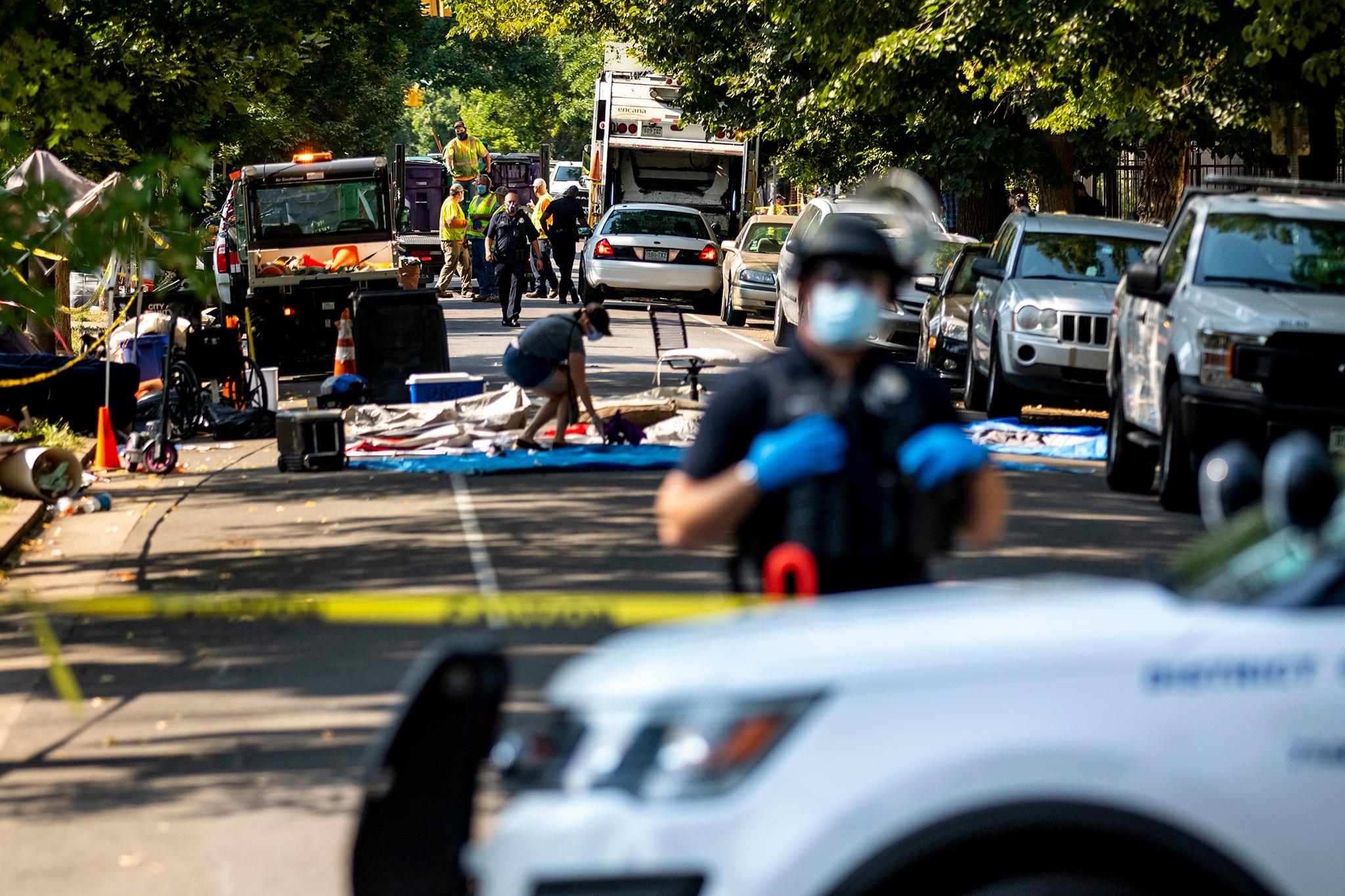The Hancock administration is taking steps to civilianize parts of its sweeps of homeless camps and divert 911 calls related to homelessness away from police officers and toward professionals outside of the criminal justice system.
Officers from the Denver Police Department, however, will still have a presence at the sweeps, said Mike Strott, a spokesperson for Mayor Michael Hancock. Denver police continue enforcing the city's urban camping ban, along with transportation and public health workers who kick people experiencing homelessness off public property. The government can either trash or store their belongings. Officers are supposed to try to connect people with social services before ticketing anyone.
The mayor wants to create a team of civilians that could help advise people of upcoming sweeps and connect them to socials services on the day of, Strott confirmed. But exactly what that will look like is still undecided.
"To the extent that they're going to be sending more social workers or mental health providers and other types of providers to these sweeps, that's good," said Cathy Alderman, vice president of public policy with the Colorado Coalition for the Homeless. "Making them less about enforcement and more about connecting to services would be a good thing. But we would need to see exactly what they're planning."
Most people call the cops to complain about people experiencing homelessness camping on the streets, or to report other nonviolent issues related to the city's unhoused population.
"We want to reroute those things through 311," he said, referring to the city government's non-emergency hotline, "and send out an outreach worker, behavioral health worker or a human services worker, and not have a police response to those comments."
The city is still setting up the system to reroute 911 calls to professionals without guns and badges. Currently, residents can call 311 to report episodes related to homelessness, but there's no guarantee that a cop won't show up. When officers do respond, they might refer people experiencing homelessness to social services anyway.
Strott called the change "the next step to the alternative response to these type of calls." The Hancock administration also instituted Denver's Support Team Assisted Response (STAR) program that replaces police with social workers and paramedics on some calls. A separate "co-responders" program pairs officers with social workers. And an outreach team, made up of advocates for the homeless and behavioral and mental health workers, operates independently from the city but is funded with tax dollars.













